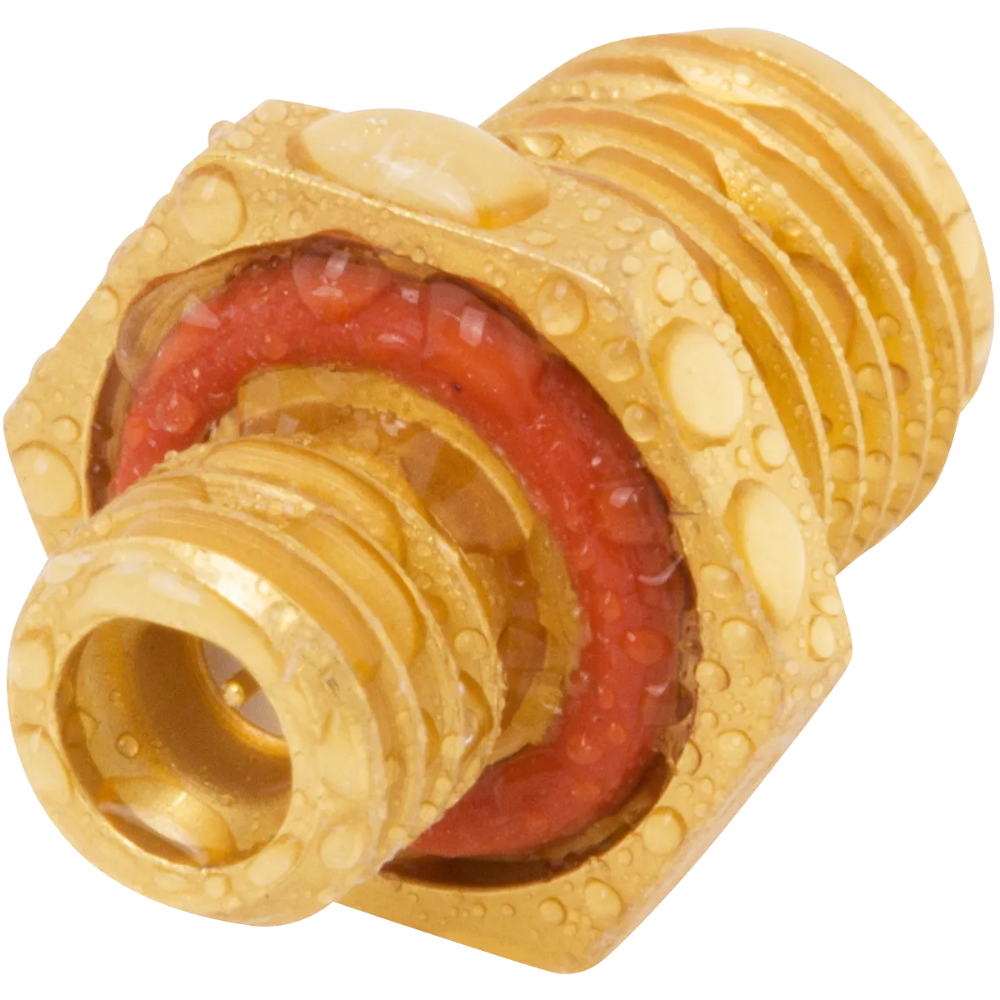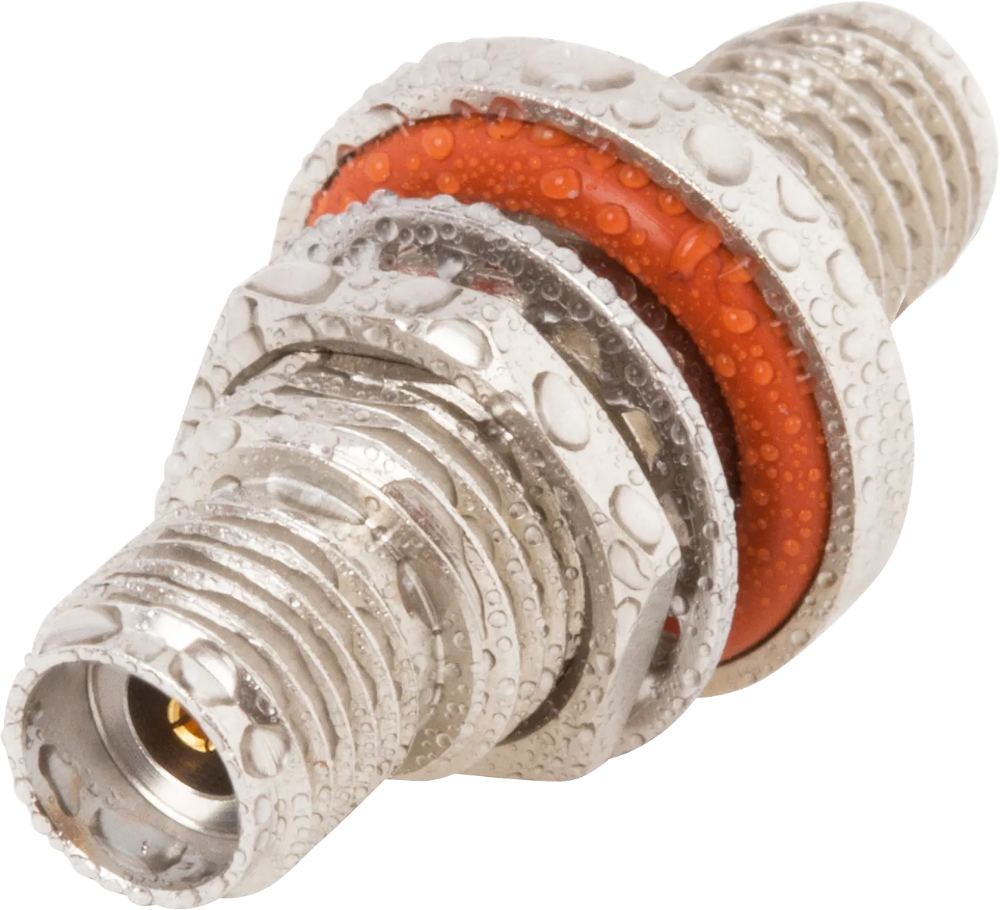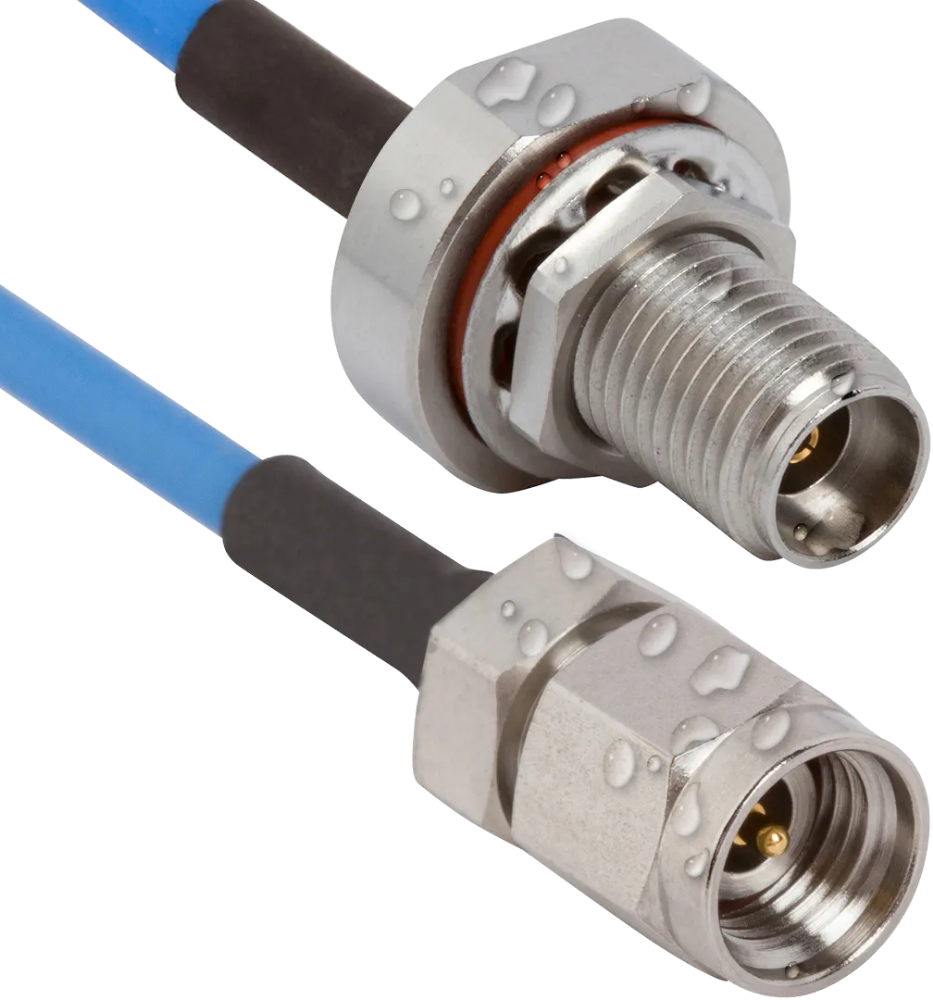Demystifying IP67 and IP68 Ratings in RF Engineering

Introduction
In the world of RF (Radio Frequency) engineering, maintaining optimal electrical and RF performance is a top priority, especially in challenging environments. This is where the concept of IP67 and IP68 ratings comes into play. In this blog post, we'll unravel the differences between these two ratings, providing a simple analogy to help you understand them better. We'll also delve into real-world applications where RF cable assemblies, adapters, and connectors require these ratings for peak performance. Plus, we'll introduce you to SV Microwave's product lines that offer IP67 and IP68-rated solutions.
Understanding IP67 and IP68 Ratings
IP (Ingress Protection) ratings are internationally recognized standards that classify and define the degree of protection provided by a device or enclosure against the intrusion of solid particles (like dust) and moisture (liquids). The 'IP' is followed by two digits, with the first digit representing protection against solids, and the second digit representing protection against liquids. Let's focus on IP67 and IP68.
IP67
This rating signifies that the device is protected against the ingress of solid particles, such as dust, and can withstand immersion in water up to 1 meter for 30 minutes. IP67-rated components are well-suited for applications where temporary submersion or exposure to rain is possible.

IP68
Devices with an IP68 rating provide an even higher level of protection. They are not only safeguarded against dust but also capable of withstanding continuous submersion in water beyond 1 meter for extended durations. This rating is ideal for applications in demanding environments where prolonged exposure to water is anticipated.

To illustrate the difference between IP67 and IP68, consider a smartphone (IP67) and a waterproof diving watch (IP68). A smartphone with an IP67 rating can survive a brief accidental drop into a shallow puddle, but prolonged submersion might lead to issues. On the other hand, the IP68-rated diving watch is designed to handle being submerged for a significant duration without any adverse effects. This analogy highlights the distinction between these two ratings – IP68 offers a higher level of water resistance compared to IP67.
Market Applications
Now, let's explore some real-world applications in RF engineering where IP67 and IP68-rated RF cable assemblies, adapters, and connectors are indispensable for optimal performance:
Military and Defense
In harsh field conditions, military communication systems often rely on IP68-rated RF connectors to ensure reliable connectivity, even in wet and dusty environments.
Maritime Communication
RF cable assemblies for maritime use must have at least an IP67 rating to withstand exposure to saltwater and harsh weather conditions.
Oil and Gas Industry
For offshore drilling and exploration, IP68-rated connectors are crucial for maintaining RF communication amidst the challenges of a marine environment.
Agriculture
IP67-rated components find applications in agricultural equipment, where exposure to dust and occasional rain is common.
Outdoor Broadcasting
The broadcasting industry frequently employs IP67 and IP68-rated connectors to support live broadcasts in varying weather conditions.
SV Microwave's IP67 and IP68 Solutions
SV Microwave, a leader in the RF industry, offers an array of IP67 and IP68-rated products to meet the demanding requirements of these applications. Their product lines include IP67-rated RF connectors, as well as hermetically sealed connectors for maximum protection. Additionally, they provide IP68-rated RF adapters and cable assemblies designed to withstand the harshest environments without compromising electrical and RF performance.
Understanding the nuances of IP67 and IP68 ratings is crucial for RF engineers and professionals. These ratings play a pivotal role in ensuring that RF components can function flawlessly in various challenging environments. SV Microwave's range of IP67 and IP68 solutions stands as a testament to their commitment to delivering reliable, high-performance RF connectivity in even the most demanding situations.
Product Video
Watch the product video, which has a clear explanation about Waterproof RF Cable Assemblies.
recent releases
Demystifying IP67 and IP68 Ratings in RF Engineering

Introduction
In the world of RF (Radio Frequency) engineering, maintaining optimal electrical and RF performance is a top priority, especially in challenging environments. This is where the concept of IP67 and IP68 ratings comes into play. In this blog post, we'll unravel the differences between these two ratings, providing a simple analogy to help you understand them better. We'll also delve into real-world applications where RF cable assemblies, adapters, and connectors require these ratings for peak performance. Plus, we'll introduce you to SV Microwave's product lines that offer IP67 and IP68-rated solutions.
Understanding IP67 and IP68 Ratings
IP (Ingress Protection) ratings are internationally recognized standards that classify and define the degree of protection provided by a device or enclosure against the intrusion of solid particles (like dust) and moisture (liquids). The 'IP' is followed by two digits, with the first digit representing protection against solids, and the second digit representing protection against liquids. Let's focus on IP67 and IP68.
IP67
This rating signifies that the device is protected against the ingress of solid particles, such as dust, and can withstand immersion in water up to 1 meter for 30 minutes. IP67-rated components are well-suited for applications where temporary submersion or exposure to rain is possible.

IP68
Devices with an IP68 rating provide an even higher level of protection. They are not only safeguarded against dust but also capable of withstanding continuous submersion in water beyond 1 meter for extended durations. This rating is ideal for applications in demanding environments where prolonged exposure to water is anticipated.

To illustrate the difference between IP67 and IP68, consider a smartphone (IP67) and a waterproof diving watch (IP68). A smartphone with an IP67 rating can survive a brief accidental drop into a shallow puddle, but prolonged submersion might lead to issues. On the other hand, the IP68-rated diving watch is designed to handle being submerged for a significant duration without any adverse effects. This analogy highlights the distinction between these two ratings – IP68 offers a higher level of water resistance compared to IP67.
Market Applications
Now, let's explore some real-world applications in RF engineering where IP67 and IP68-rated RF cable assemblies, adapters, and connectors are indispensable for optimal performance:
Military and Defense
In harsh field conditions, military communication systems often rely on IP68-rated RF connectors to ensure reliable connectivity, even in wet and dusty environments.
Maritime Communication
RF cable assemblies for maritime use must have at least an IP67 rating to withstand exposure to saltwater and harsh weather conditions.
Oil and Gas Industry
For offshore drilling and exploration, IP68-rated connectors are crucial for maintaining RF communication amidst the challenges of a marine environment.
Agriculture
IP67-rated components find applications in agricultural equipment, where exposure to dust and occasional rain is common.
Outdoor Broadcasting
The broadcasting industry frequently employs IP67 and IP68-rated connectors to support live broadcasts in varying weather conditions.
SV Microwave's IP67 and IP68 Solutions
SV Microwave, a leader in the RF industry, offers an array of IP67 and IP68-rated products to meet the demanding requirements of these applications. Their product lines include IP67-rated RF connectors, as well as hermetically sealed connectors for maximum protection. Additionally, they provide IP68-rated RF adapters and cable assemblies designed to withstand the harshest environments without compromising electrical and RF performance.
Understanding the nuances of IP67 and IP68 ratings is crucial for RF engineers and professionals. These ratings play a pivotal role in ensuring that RF components can function flawlessly in various challenging environments. SV Microwave's range of IP67 and IP68 solutions stands as a testament to their commitment to delivering reliable, high-performance RF connectivity in even the most demanding situations.
Product Video
Watch the product video, which has a clear explanation about Waterproof RF Cable Assemblies.






